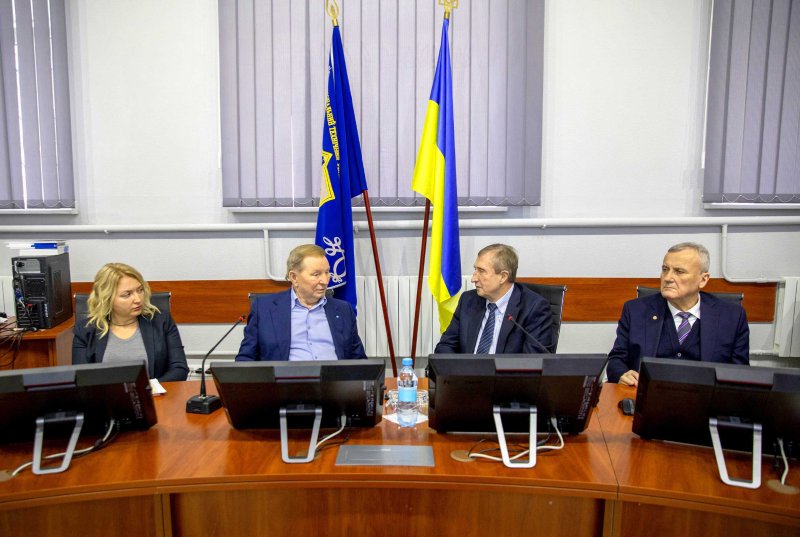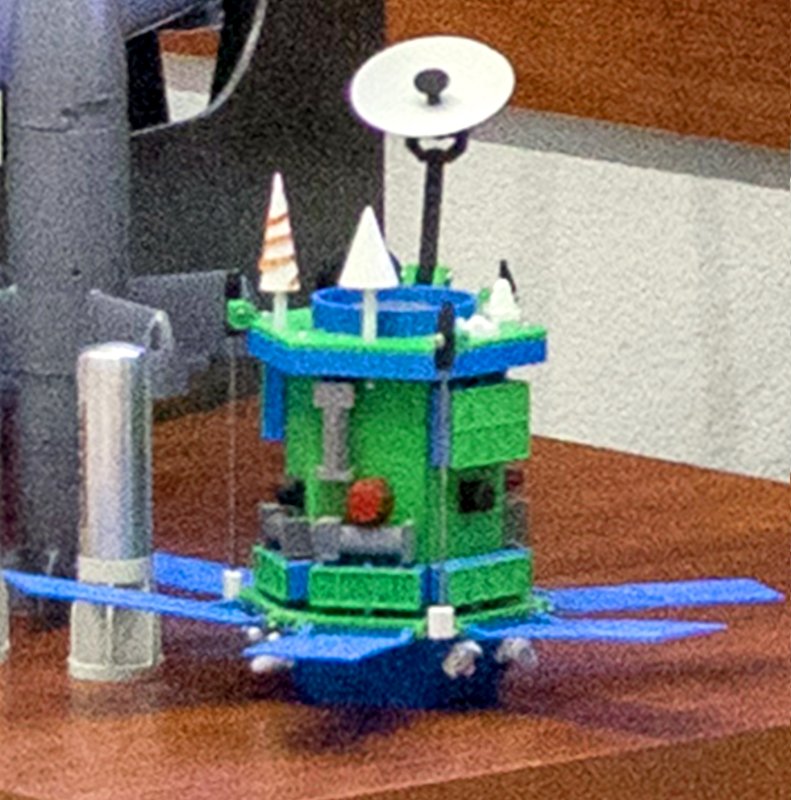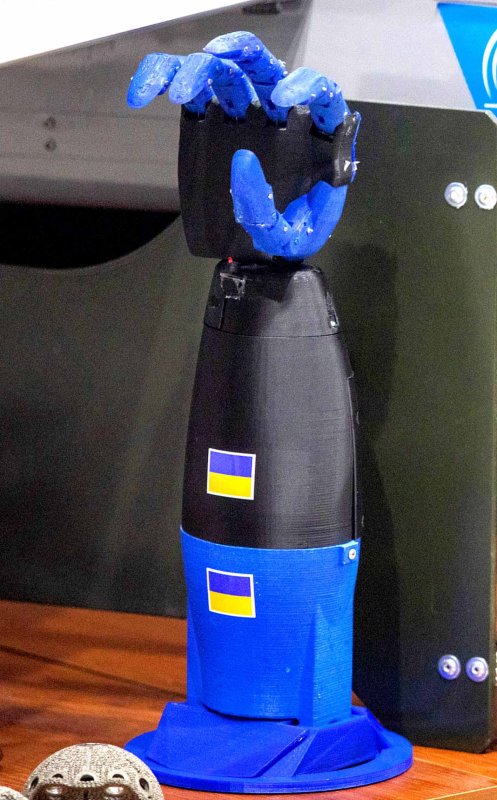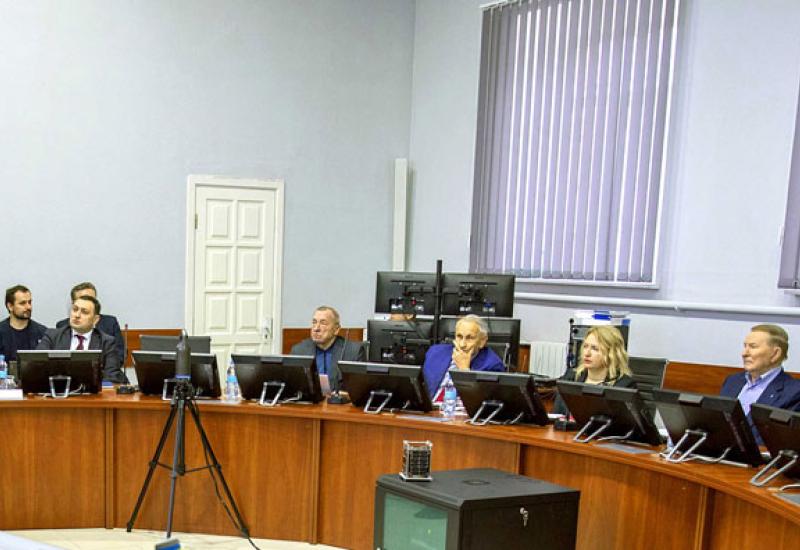The end of the year is always about summarizing the results and outlining plans for the future. The meeting of the Supervisory Board of the Igor Sikorsky Kyiv Polytechnic Institute, which took place on December 11, was devoted to these issues. The meeting was chaired by its chairman, Leonid Kuchma, President of Ukraine in 1994-2005.
The Rector of Igor Sikorsky Kyiv Polytechnic Institute, Academician of the National Academy of Sciences of Ukraine Mykhailo Zgurovsky, made a thorough report on the university's activities in 2023 and in general in the recent period.

"Today, Igor Sikorsky Kyiv Polytechnic Institute is a research university, the model of which harmoniously combines three components: educational, research and innovation. By the innovation component, we mean the inclusion of projects for the creation of new equipment in educational programs and plans of the university together with high-tech companies and, at the same time, the study of special engineering disciplines," he said at the beginning of his speech, formulating the principles on which the university's work is based.
This unity has also determined the ability of Igor Sikorsky Kyiv Polytechnic Institute to quickly build adequate mechanisms to ensure the university's activities in the new circumstances - first, the COVID-19 pandemic, and later a full-scale war unleashed by Russia. The innovations that have been implemented in the practical work of Kyiv Polytechnic, which have allowed it not only to continue to work effectively but also to remain one of the leaders in higher education in Ukraine, have clearly proven the productivity of this model. "The challenges we faced made us radically restructure our work. First of all, we had to create the latest tools for learning. We call this learning a blended learning - some students study full-time, some study remotely. Therefore, we had to quickly develop interactive learning tools, environment modeling tools for creating virtual labs, and additional distance education platforms. During this time, about a thousand such tools have been created and incorporated into a special Sikorsky distance learning platform," the rector told the Supervisory Board members. "This area of work has resulted in the digital transformation of the university, and we have now automated most of our operations both in the educational process - through our Electronic Campus platform, which covers all stages of the educational process with digital technologies - and in management activities."
The scale of this work is evidenced by statistics. According to Mykhailo Zgurovsky, more than 23 thousand students are currently studying at Igor Sikorsky Kyiv Polytechnic Institute, 67 world-recognized scientific schools and 272 scientific groups are working. Students are enrolled in 43 bachelor's programs, 92 master's programs, and 37 PhD programs. Because the university is innovative, approximately 100 startups of various levels and sizes are born there every year. During the war, since 2014, more than 110 such startups have entered the markets of Ukraine and other countries.

Most of the developments of Kyiv Polytechnics are largely related to strengthening the country's defense and modernizing our security forces, introducing modern methods of health recovery and physical and professional rehabilitation of Ukrainian soldiers who have been seriously injured and maimed in this war, etc. Some of them are also aimed at clearing our land of dangerous traces of war, such as mines and unexploded ordnance. The defense theme is now a leading one in the traditional Sikorsky Challenge festival of innovative projects. At the same time, more and more Igor Sikorsky Kyiv Polytechnic Institute graduates are joining the teams of the country's military-industrial complex as specialists. And sometimes they even head such enterprises, as the university has opened a master's program in management training for the defense industry. All this and much more is an important contribution of the university to the common cause of bringing the Victory closer.
It is worth adding that due to the practical focus of the projects that scientists, teachers, and students are working on, the university's ties with defense companies and structures that ensure the country's defense have not only not weakened but have also significantly strengthened recently. Therefore, the path from an idea to its realization and scaling of the finished product has been significantly reduced.
Moreover, Igor Sikorsky Kyiv Polytechnic Institute has an information and analytical Situation Center, which was the subject of a separate report at the meeting. Its employees monitor and analyze significant events and trends in the life of our country in almost real time, using the most advanced tools available to modern science. By the way, back in 2022, they studied three possible scenarios for the development of the situation in the event of the Kakhovka hydroelectric power plant dam blowing up and flooding the surrounding areas and provided the forecasts necessary to plan actions to reduce the damage from such a terrorist act. It should be noted that one of these scenarios, unfortunately, became a reality (and it came true with a very high degree of similarity to the modeled one), and this helped speed up the rescue efforts.
KPI's space program is equally important. According to the rector, over the past fifteen years, the university has built a full cycle of design, development, launch, and operation of research nano- and microsatellites in orbit. Today, there are three nanosatellites created by Kyiv Polytechnics in space, and next year it is planned to launch two more nanosatellites, one of which is being developed jointly with colleagues from Poznan University of Technology (Poland). Both will carry payloads that can be used for the defense industry.

By the way, Yaroslav Yatskiv, Director of the Main Astronomical Observatory of the National Academy of Sciences of Ukraine, member of the Presidium of the National Academy of Sciences of Ukraine, Deputy Chairman of the Supervisory Board of Igor Sikorsky Kyiv Polytechnic Institute, also mentioned university spacecraft during the discussion of the rector's report. In particular, he said that since 2018, Ukraine has not had a single state space program, and only Kyiv Polytechnic has been working hard and consistently on this topic, seeking funds and opportunities for its implementation.
In general, the discussion of the rector's report went far beyond summarizing the results of the university's work in 2023 and clarifying its individual aspects. The participants talked about the unique experience of organizing educational, scientific, innovative, expert and analytical work accumulated at Igor Sikorsky Kyiv Polytechnic Institute and the need to extend it to the work of other Ukrainian universities, and to implement some aspects in the activities of public authorities. So at the end of the meeting, the Supervisory Board members agreed to prepare an appeal to the authorities outlining certain ideas already tested at Igor Sikorsky Kyiv Polytechnic Institute that will be useful in solving strategic issues important for the whole country.
"We still have a tremendous scientific and technical potential, so we should not lose what we have today," Leonid Kuchma said after the meeting, "Indeed, it would be worthwhile to gather all the rectors in this institution: to show them what we have and say: 'Dear community, learn, and take at least a part of what is positive here and use it yourself.
A meeting of the Supervisory Board was held at Igor Sikorsky Kyiv Polytechnic Institute. Our students and scientists are working on innovative developments that can change the course of the war: unmanned aerial, ground and sea vehicles, technologies for automating the control of military weapons, rehabilitation of the military, etc.
The main goal of the university today is to ensure that all developments help our security and defense forces in the fight against the enemy as soon as possible.

